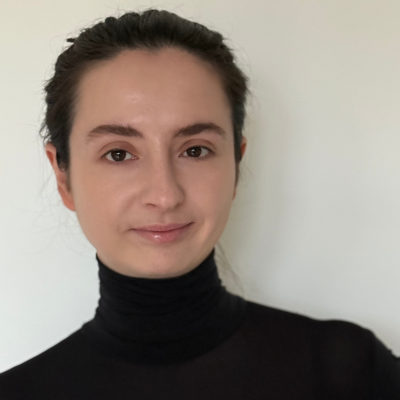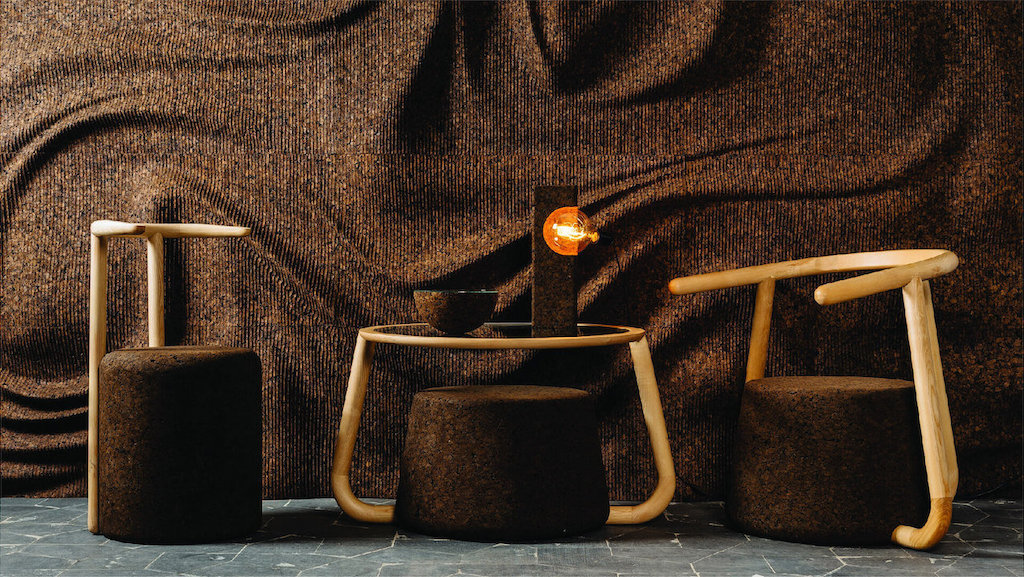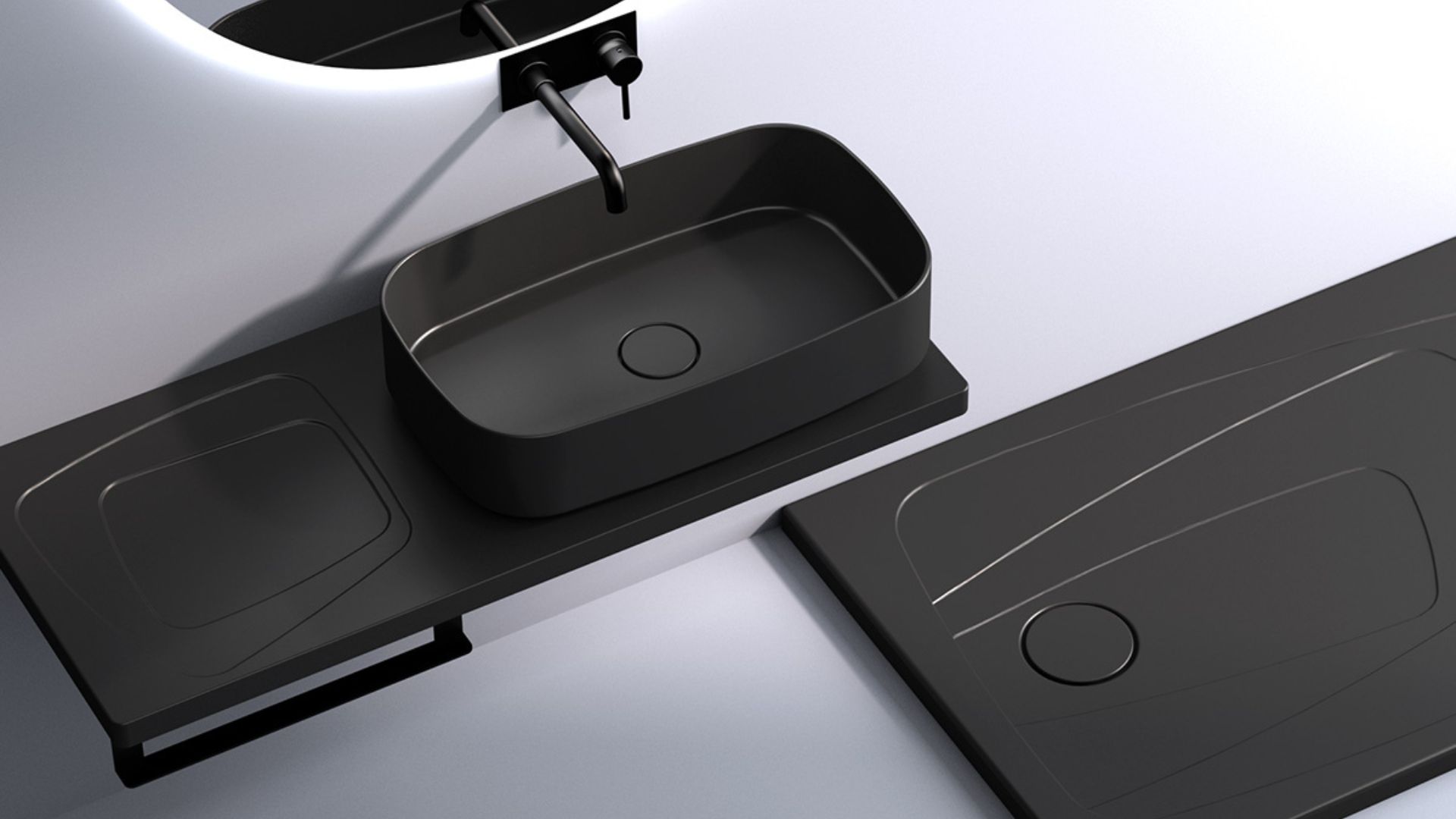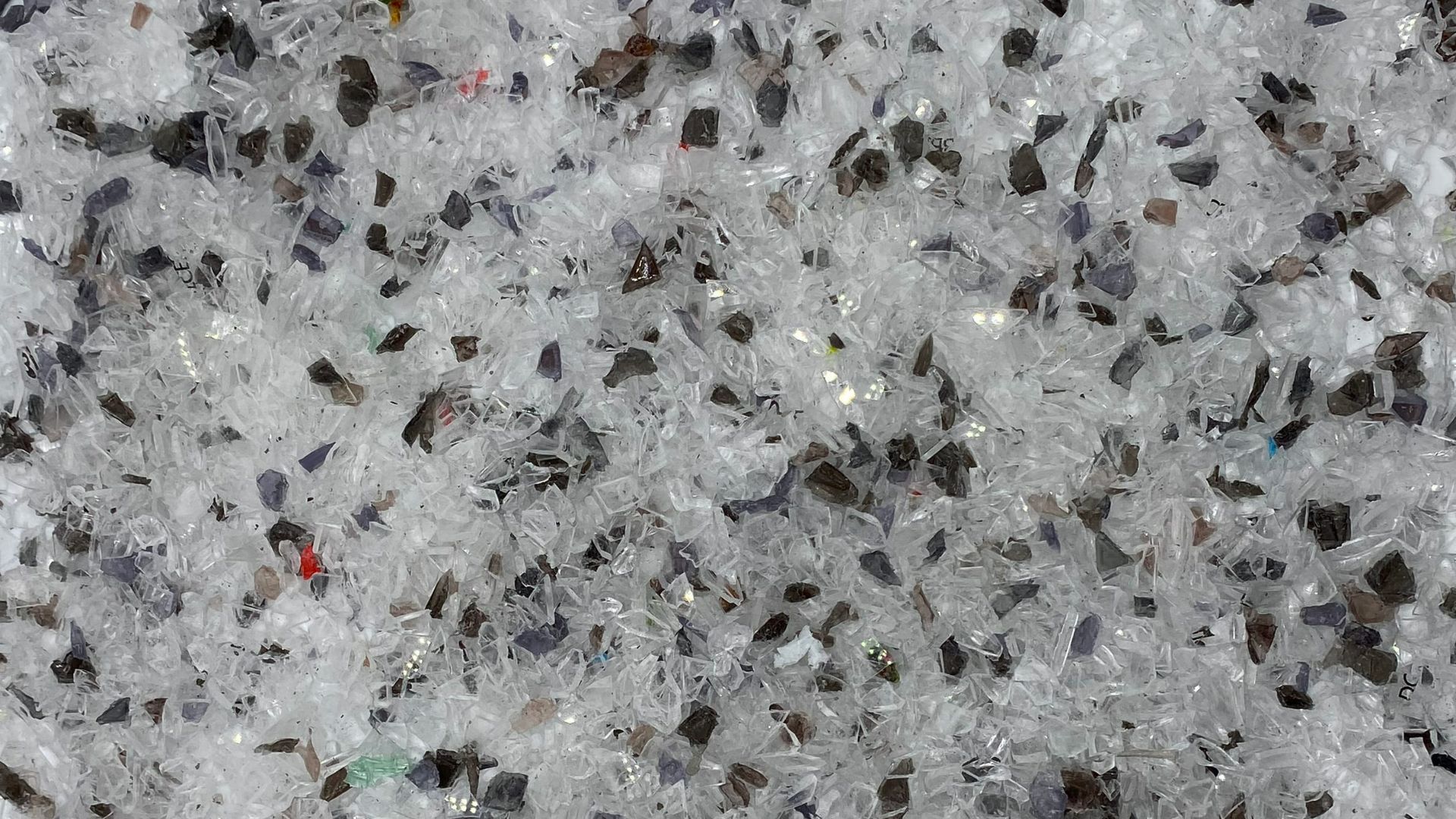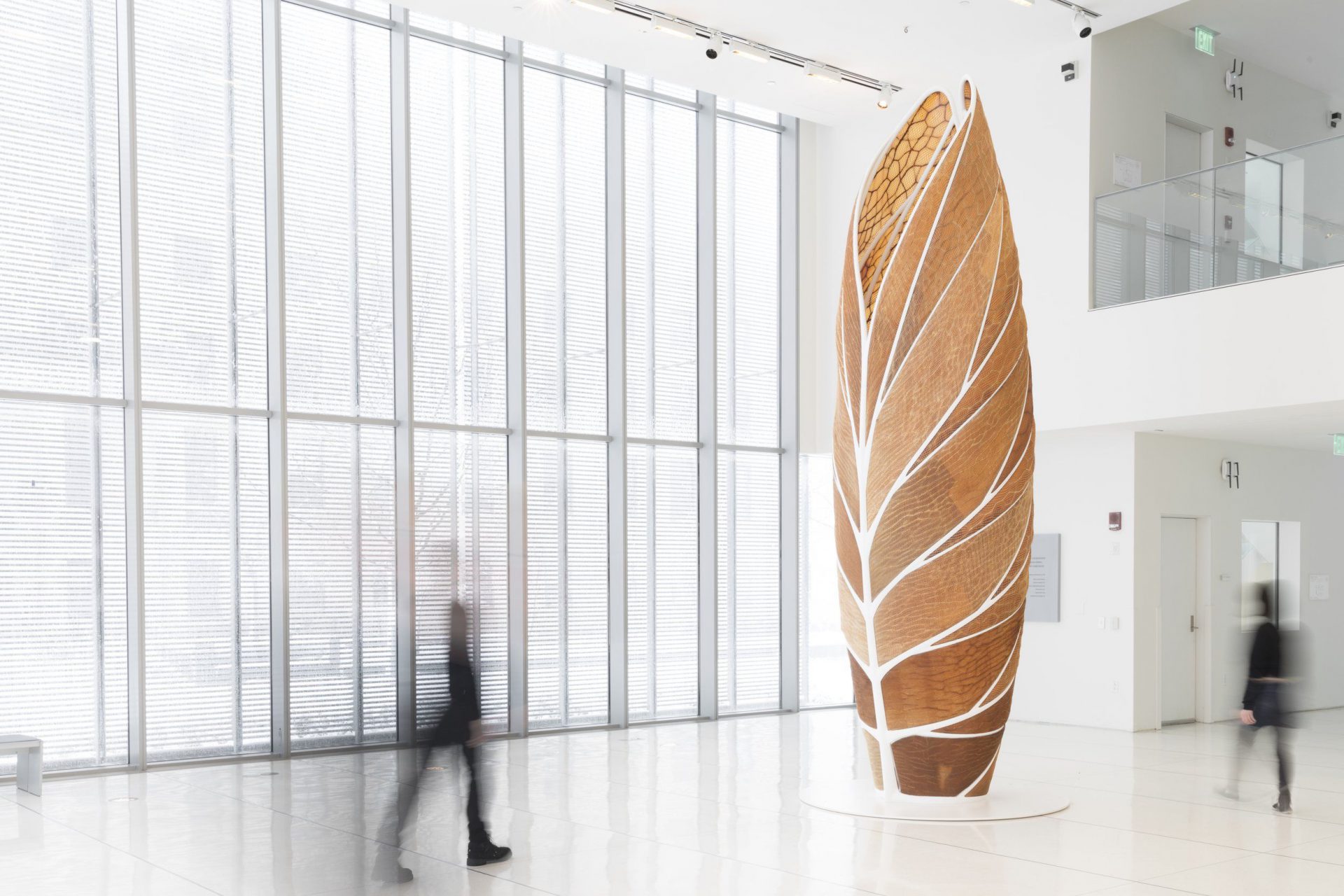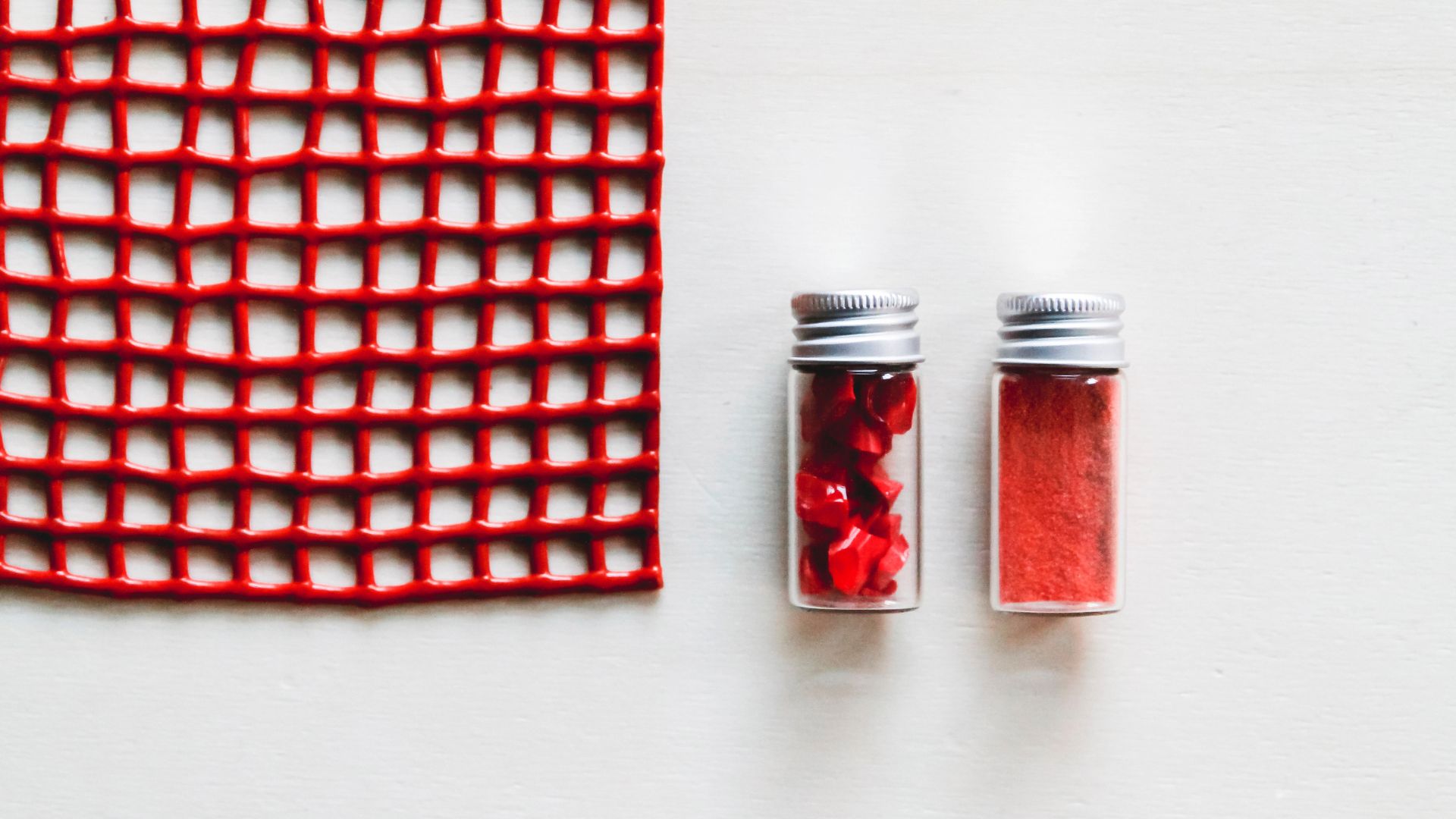Sustainable sawdust-based glaze compatible with nearly every type of stone
With their ingenious formula at the center, multi-awarded Studio Peipei is inspiringly invested in repurposing and masterfully shaping holistic material cycles.

What’s your secret ingredient? This is more than a somewhat perplexing question. Every great recipe (of any nature) is rooted in a distinct yet reactionary intention, sizzling and potent enough to flow within all its layers, so rarely does it come down to a singular component. Anchored by a profound focus on and commitment to sustainability, Studio Peipei, one of the first material design studios in Germany, spent three years refining its inventive recipe for recycled sawdust-blazed glaze. After continuous sampling of materials and tactile tweaks to the equation, they have now arrived at a blend that adapts to nearly every type of stone.

Studio Peipei’s crucial collaborator happens to also be their friendly neighbor. Located 60 kilometers from the Munich-based studio, the Dichtl company is their main source of sawdust. When in short supply, Studio Peipei turns to Barbany Artesans in Barcelona which crafts figures that adorn the Sagrada Familia. As up to 40 tons of stone dust are deposited at each production site per month, Studio Peipei’s sustainability-centered agenda extends to not only their practices of repurposing waste on a sizable scale but to the specificities of their production cycle, resulting from extensive research and analysis.
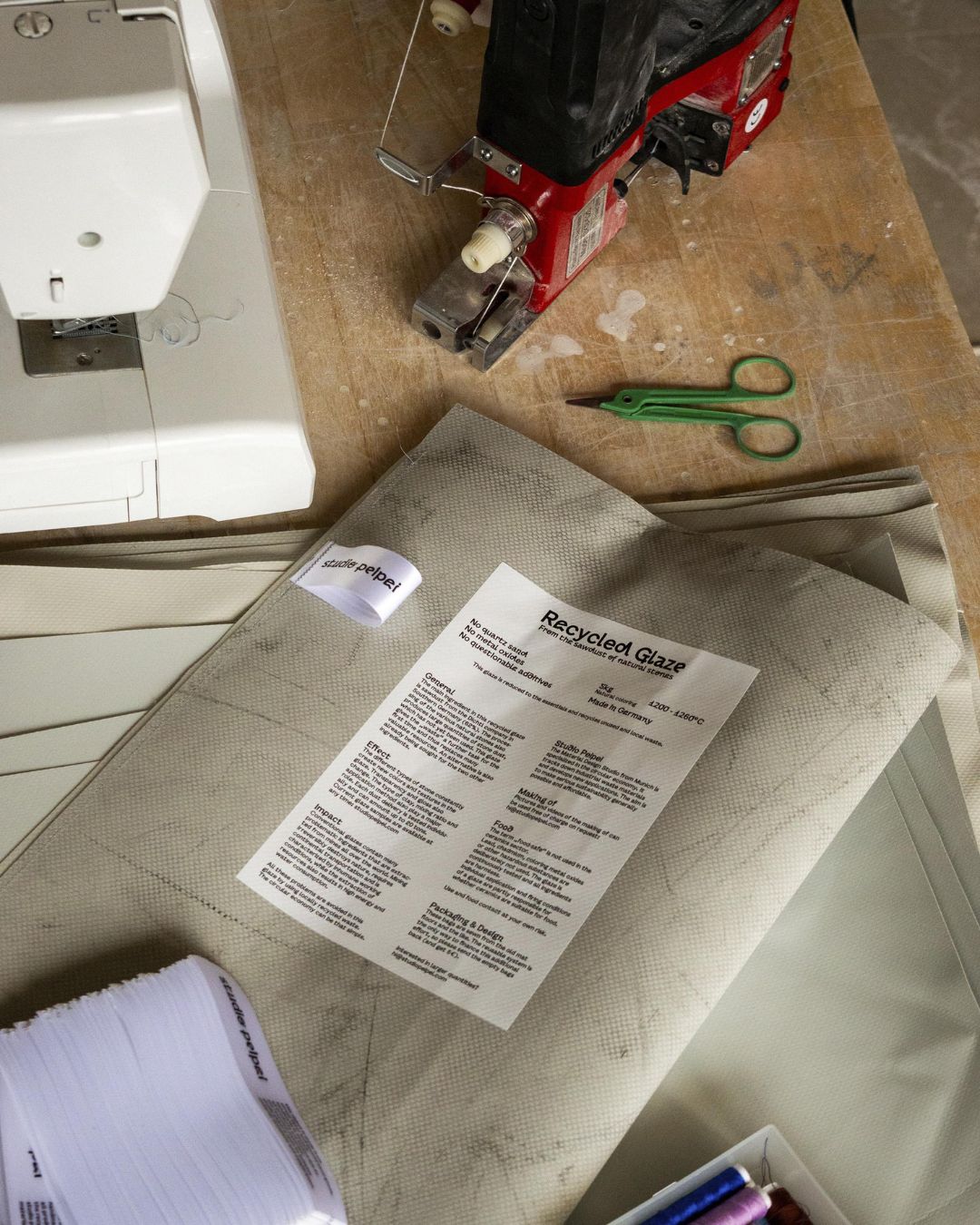
As stones naturally contain enough quartz, Studio Peipei’s pioneering sawdust-based glaze completely eliminates the need for common additives such as quartz sand, metal oxides, and stabilizers. An outcome of their meticulous examination of natural stones, the collective utilizes common additives amongst which are metal oxides, ball clay, bone ash, and kaolin. The water required for processing is already pressed out of the stone dust during production which simultaneously significantly minimizes energy consumption and simplifies production overall.

An environmentally-conscious alternative to traditional resources that are often mined, processed, and shipped, Studio Peipei’s glaze formula is certified for daily-use items and tiles. It seamlessly adapts to the natural fluctuations in stone materials which ensures consistent and unmatched quality as well as to a wide variety of stones, each batch creating new colors and structures. As varying factors, gloss and transparency differentiate according to the clay’s type, mixing ratios, and processing methods. This is reflected in the glaze’s awe-inspiring unpredictability.
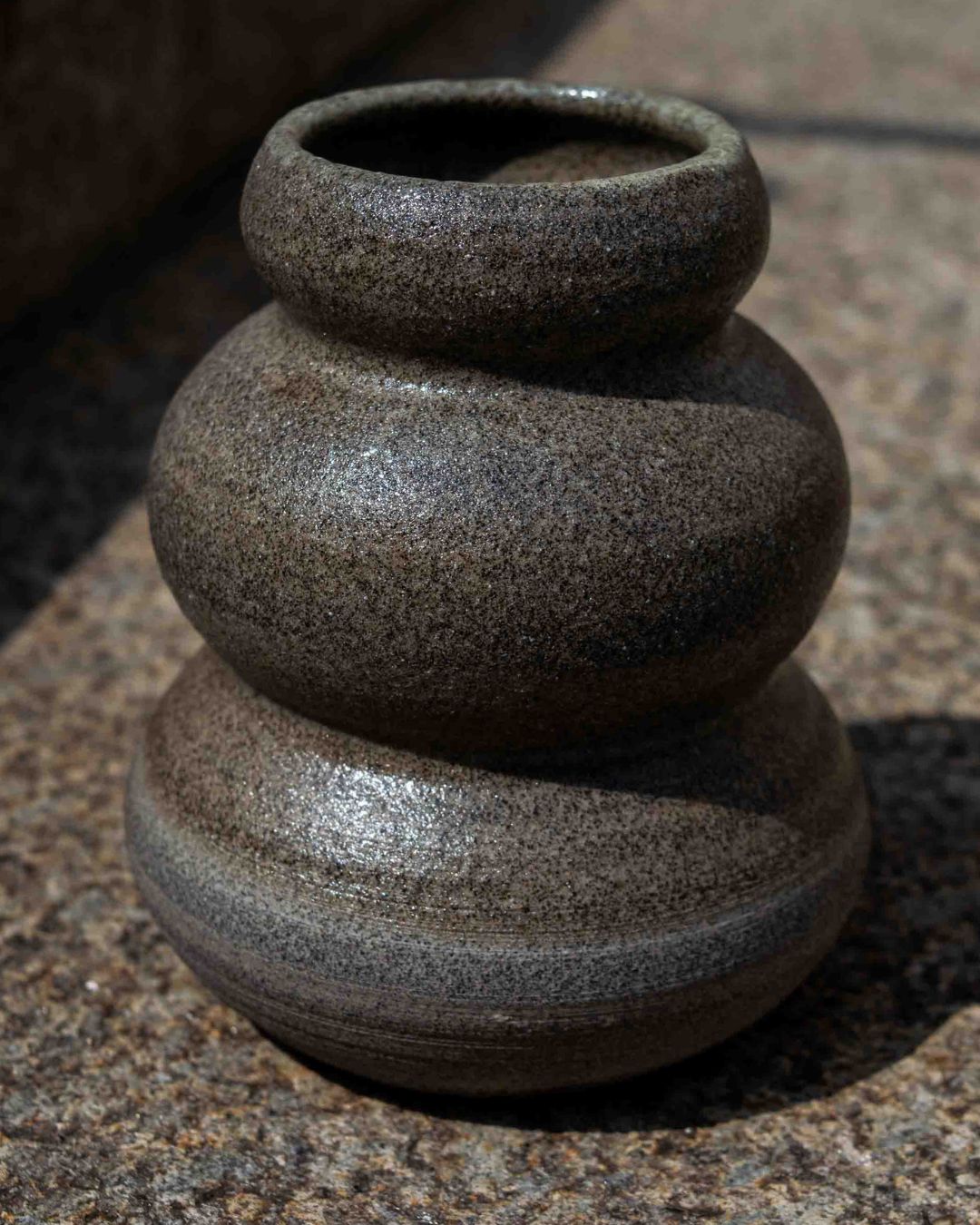
The glaze also comes in eco-friendly packaging. Made from uncoated, 100% recycled paper, the test bags include stone dust residue as well. The labels are printed on leftover stock from local printing companies and produced in partnership with The Happy Club, another local studio that implements an exceptionally sustainable printing process via plant-based colors. Acting as a protagonist in the shaping and greenifying of local material cycles, for its larger packaging, Studio Peipei uses old tarpaulins and advertising banners.

When Benedikt Peirotén founded Studio Peipei back in 2021, it was undeniably a natural progression for the multidisciplinary creative. After studying Industrial Design in Munich and Basel as well as obtaining his Master’s in Design Through New Materials at Elisava in Barcelona, he amassed valuable experience in industrial and material design through various internships and collaborations with high-caliber companies. Studio Peipei now produces between one and two tons of recycled glaze per month and acts as an advisor to businesses that seek to reduce their environmental footprint.
Studio Peipei’s gripping philosophy lies in recognizing the potential of materials previously seen as waste. For them, the creative process starts with the material rather than the product idea.

